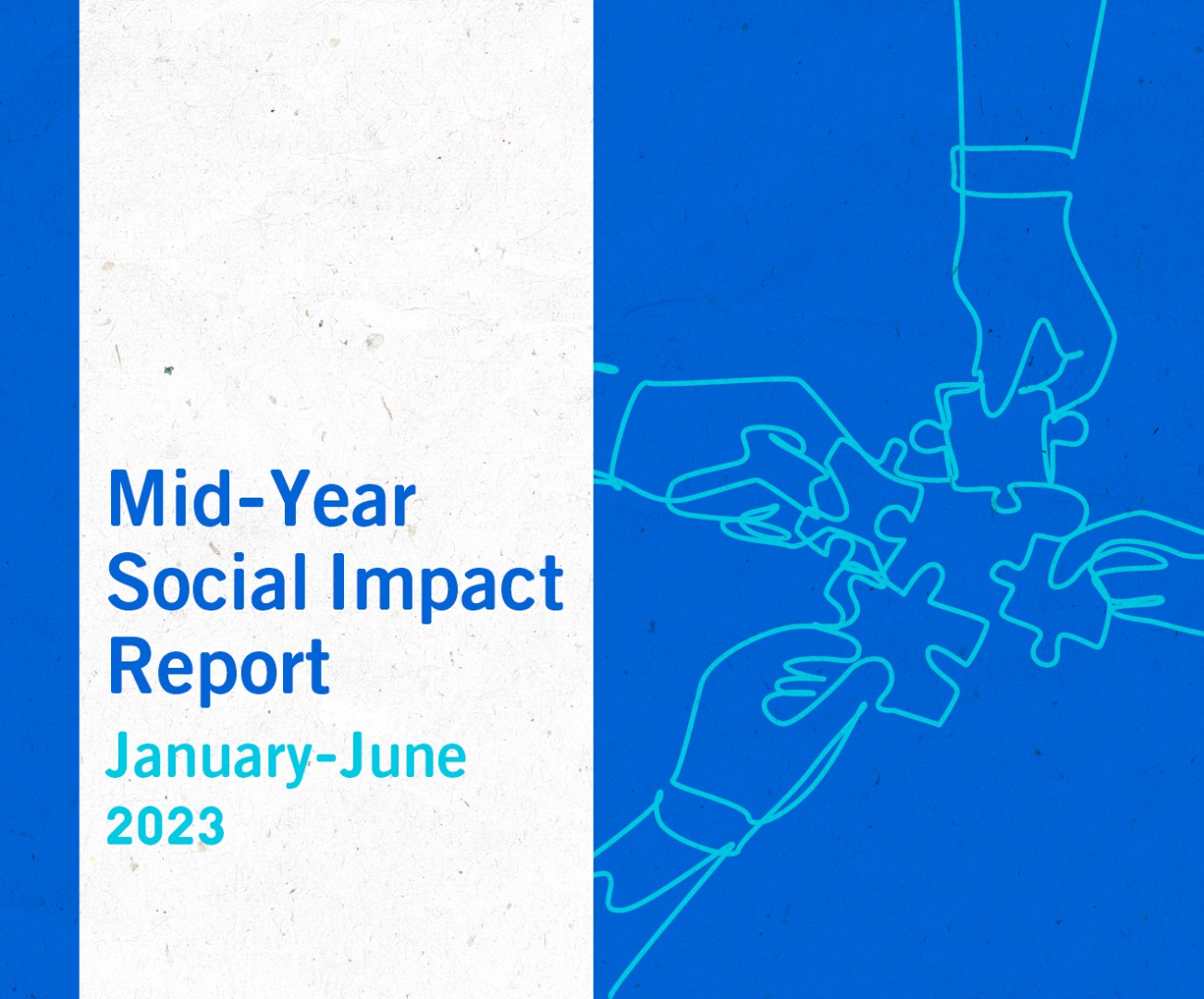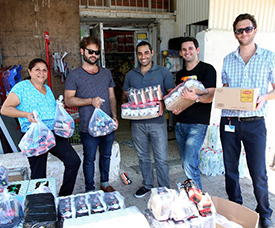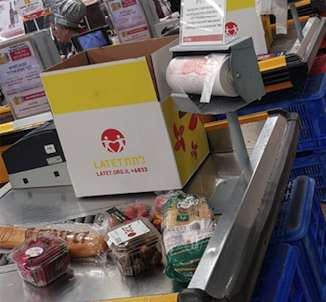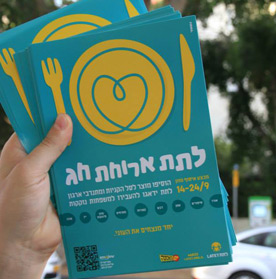Almog is young, full of life and determined to build herself a better future. Watch her tell her story.
WatchImpoverished Students Start the School Year
73% of the aid recipients testified that their children lacked basic school supplies and school textbooks
Children of families in need who don't receive the basic conditions necessary for subsistence such as nutritional security and the minimum tools necessary for personal development such as books, backpacks, and necessary equipment will have a hard time realizing their talent and potential.
Approximately 410,985 students are expected to suffer from nutritional insecurity and about half of them (19,6727) from severe nutritional insecurity in the coming school year.
Education is one of the most significant keys to reducing social and economic gaps. Quality and proper education enables social mobility and can influence the creation of social relationships, a sense of capability and beneficial integration into the employment market in adulthood. Education can be a turning point in improving children's well-being, developing personal potential, and preventing intergenerational transmission of poverty. However, reality shows that many times the education system in Israel fails to provide a developmental horizon for students living in poverty and widens the gaps. In this situation, children from families in need do not receive the appropriate tools and skills to maximize their talent and personal potential, which reduces their chances of acquiring higher education and careers, leading to inequality in education translating into inequality in employment and widening the gap. Families living in poverty are forced every day to make a wide variety of painful concessions in their family lives. This reality also forces them to make various concessions in their children's education, which may affect their future and perpetuate their situation.
Most students in the supported families will lack basic school supplies and textbooks, and they will have to give up participating in classes, trips, and enrichment activities. More than half of the supported parents will not bring young children into educational framework because they will not be able to pay for it. About a third of the children receiving aid have dropped out or may drop out of school.
A study conducted among Latet aid recipients paints a worrying picture that reflects inequality of educational opportunity experienced by children in families in need supported by non-profit organizations.
Main points of the study:
73% of the aid recipients testified that their children lacked basic school supplies and school textbooks because they can't get them or pay for buying them.
85.1% of the aid recipients had to give up extracurricular activities, enrichment activities at school, trips, and youth organizations for their children because they could not pay for them. This is an increase of 8.3% from last year (78.6%).
76.6% of the aid recipients estimated that they will not be able to meet the school fees in the coming school year.
Above half (53.4%) of the aid recipients were prevented from placing one or more of their children aged 0-3 in an educational framework because they could not pay for it.
Above half (55.5%) of the aid recipients noted that there are no conditions in their home that allow for learning, such as quiet, privacy and a comfortable environment.
About a third (32.3%) of the aid recipients Indicated that one or more of their children had dropped out or that there was a chance that they would drop out of school (Excluded respondents who indicated that their children were too young).
38.4% of the aid recipients testified that in the past year their children reduced or skipped meals as a result of economic hardship.
Latet will continue to work to change policy and put the problem of poverty in Israel on the national agenda.
In the meantime, we will continue to help tens of thousands of families.
Help thousands of children from families in need by sending them to school with a backpack full of school supplies and nutritious food.
Approximately 410,985 students are expected to suffer from nutritional insecurity and about half of them (19,6727) from severe nutritional insecurity in the coming school year.
Education is one of the most significant keys to reducing social and economic gaps. Quality and proper education enables social mobility and can influence the creation of social relationships, a sense of capability and beneficial integration into the employment market in adulthood. Education can be a turning point in improving children's well-being, developing personal potential, and preventing intergenerational transmission of poverty. However, reality shows that many times the education system in Israel fails to provide a developmental horizon for students living in poverty and widens the gaps. In this situation, children from families in need do not receive the appropriate tools and skills to maximize their talent and personal potential, which reduces their chances of acquiring higher education and careers, leading to inequality in education translating into inequality in employment and widening the gap. Families living in poverty are forced every day to make a wide variety of painful concessions in their family lives. This reality also forces them to make various concessions in their children's education, which may affect their future and perpetuate their situation.
Most students in the supported families will lack basic school supplies and textbooks, and they will have to give up participating in classes, trips, and enrichment activities. More than half of the supported parents will not bring young children into educational framework because they will not be able to pay for it. About a third of the children receiving aid have dropped out or may drop out of school.
A study conducted among Latet aid recipients paints a worrying picture that reflects inequality of educational opportunity experienced by children in families in need supported by non-profit organizations.
Main points of the study:
73% of the aid recipients testified that their children lacked basic school supplies and school textbooks because they can't get them or pay for buying them.
85.1% of the aid recipients had to give up extracurricular activities, enrichment activities at school, trips, and youth organizations for their children because they could not pay for them. This is an increase of 8.3% from last year (78.6%).
76.6% of the aid recipients estimated that they will not be able to meet the school fees in the coming school year.
Above half (53.4%) of the aid recipients were prevented from placing one or more of their children aged 0-3 in an educational framework because they could not pay for it.
Above half (55.5%) of the aid recipients noted that there are no conditions in their home that allow for learning, such as quiet, privacy and a comfortable environment.
About a third (32.3%) of the aid recipients Indicated that one or more of their children had dropped out or that there was a chance that they would drop out of school (Excluded respondents who indicated that their children were too young).
38.4% of the aid recipients testified that in the past year their children reduced or skipped meals as a result of economic hardship.
Latet will continue to work to change policy and put the problem of poverty in Israel on the national agenda.
In the meantime, we will continue to help tens of thousands of families.
Help thousands of children from families in need by sending them to school with a backpack full of school supplies and nutritious food.










